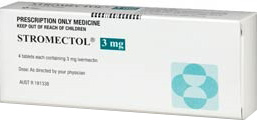Antiparasitic

Antiparasitic medications are drugs used to treat infections caused by parasites such as protozoa, helminths (worms), and ectoparasites like lice and mites. These infections affect millions of people globally and can range from mild intestinal discomfort to life-threatening systemic illnesses. Antiparasitics help eliminate parasites from the body, reduce symptoms, and prevent further complications.
Types of Parasitic Infections 1. Intestinal ParasitesIntestinal parasites, such as roundworms, hookworms, whipworms, and tapeworms, are among the most common worldwide. They are often transmitted through contaminated food, water, or poor hygiene practices. Symptoms may include abdominal pain, diarrhea, weight loss, fatigue, and nutrient deficiencies.
2. Blood ParasitesBlood-borne parasites like Plasmodium (which causes malaria) and Trypanosoma (responsible for sleeping sickness and Chagas disease) are transmitted by insect vectors such as mosquitoes and tsetse flies. These infections are more prevalent in tropical regions and can cause high fever, anemia, neurological issues, and death if untreated.
3. Skin ParasitesEctoparasites live on or under the skin. Common examples include lice, scabies mites, and botfly larvae. These infestations cause intense itching, skin rashes, and, in some cases, secondary bacterial infections due to scratching.
4. Tissue and Organ ParasitesSome parasites, such as Echinococcus (tapeworm cysts), migrate and form cysts in organs like the liver, lungs, or brain. These infections are often asymptomatic at first but may later require surgical removal or long-term medication.
Common Antiparasitic Medications Drug Target Parasite Common Use Albendazole Roundworms, tapeworms Soil-transmitted helminths, hydatid disease Mebendazole Pinworms, whipworms Intestinal deworming in children and adults Ivermectin Onchocerca, lice, scabies River blindness, strongyloidiasis, ectoparasites Metronidazole Giardia, amoeba Amoebiasis, giardiasis, trichomoniasis Praziquantel Schistosomes, tapeworms Schistosomiasis, cysticercosis Symptoms of Parasitic InfectionsSymptoms of parasitic infections vary based on the parasite type and location in the body. Intestinal parasites may cause bloating, gas, and malnutrition. Blood parasites often lead to fever, chills, and organ damage. Skin parasites cause rashes, itching, or visible movement under the skin. Chronic parasitic infections may lead to long-term immune suppression, fatigue, and organ failure.
Who Is Most at Risk?Populations at high risk of parasitic infections include individuals living in or traveling to tropical and subtropical areas, people with poor sanitation or contaminated water exposure, children, immunocompromised individuals, and those in close contact with animals or livestock. Preventive hygiene, clean water access, and periodic deworming are essential to reducing global parasitic disease burden.